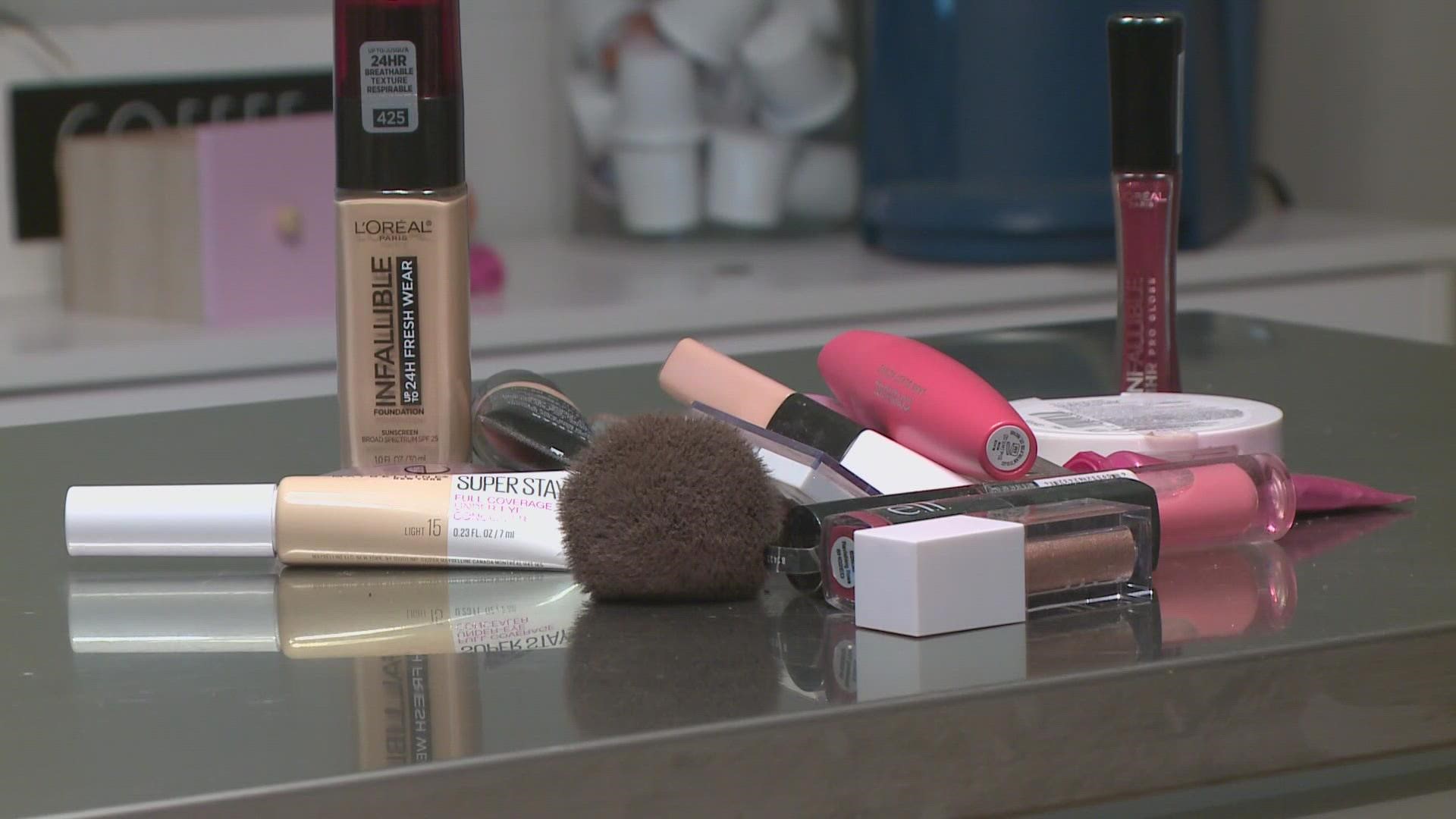MAINE, USA — A recent University of Notre Dame study found toxic chemicals known as PFAS in more than half of the makeup products they tested.
PFAS is used to increase a product's durability and wear. Studies by the Centers for Disease Control have linked the chemicals to cancer, immune system damage, and other health problems.
Researchers tested more than 200 products and discovered compounds in 52% of them. The study did not list the brands, which were purchased from big-box retailers in the U.S. and Canada. The highest levels of fluorine, an indicator of PFAS, were found in makeup designed to stay on longer and marketed as wear-resistant, long-lasting, and waterproof.
"Based on what we know about PFAS, they shouldn't be in products at all," David Andrews, a senior scientist with the Environmental Working Group said.
The national nonprofit has worked to restrict PFAS. Previously, Andrews worked with Graham Peaslee, the principal investigator of the Notre Dame study, in researching PFAS in food wrappers.
Also, nearly 90% of the makeup products tested lacked information about these ingredients on their product labels. Scientists don't know enough about how much consumers are ingesting by putting these products on their skin. One thing is for sure, they say: any PFAS chemicals in these products will end up in sensitive areas.
"This is a significant area of concern for people who apply cosmetics to your face, lips, and eyes because we know PFAS are so incredibly toxic at low concentrations," Andrews said.
In July, Maine became the first state to ban all PFAS from being intentionally added to any product sold in our state. The law, passed by lawmakers this past July, will take effect in 2030.
The sale of new carpets or fabric treatments with PFAS is prohibited as of January of 2023. Patrick MacRoy, is the Deputy Director of Defend Our Health, a national nonprofit based in Portland, that works to eliminate toxic chemicals in food products and water.
"That will allow us to have a better sense to target our efforts to replace PFAS with safer alternatives," MacRoy said.
The Food and Drug Administration does not require premarket safety testing or registration of product ingredients in cosmetics. It relies on manufactures to ensure that their products are safe.
For more information on what ingredients are prohibited and restricted in cosmetics by the FDA, click here.
EWG maintains an online guide with toxic safety ratings for more than 78,000 cosmetics and other personal care products and more than 2,500 brands.

